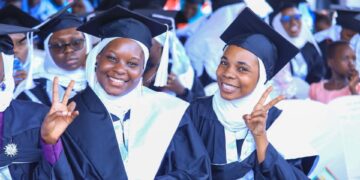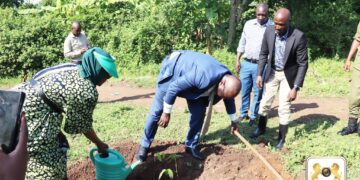By Leonard Kamugisha Akida,
The Higher Education Students Financing Board of Uganda has considered supporting continuing students at university and other tertiary institutions to enable them complete their study programmes.
Whereas loan schemes under the Higher Education Students’ Financing Board (HESFB) were only open to students joining their first year of study, the board in its 27th meeting resolved to direct funds to 2nd, 3rd, 4th and 5th year students depending on the years of the programme.
It should be recalled that parliament in the FY2020/21, appropriated additional funding of UGX 500Million to cater for continuing students effective AY2021/22.
The HESFB executive director Micheal Wanyama on Monday disclosed that the board final year students at a University and other tertiary institutions with financial challenges can now apply for the HESFB loan scheme.
“Therefore, I am happy to announce that in the academic year 2021/22, HESFB will be receiving applicants from the final year students who need a financial intervention to finalise their programmes of study,” said Michael Wanyama, the executive director of HESFB.
Wanyama was speaking to journalists at the Uganda Media Centre on Monday where he revealed plans to support all students in the subsequent years as the funding grows.
Eligibility to qualify for Students loan scheme
Applicants seeking to get funds for the academic year 2021/22 must be Ugandans, in their final year of study and must demonstrate a financial need.
They must also be studying at approved public and private higher education institutions and should be pursuing HESFB approved programmes under affirmative action.
Learners with special needs can access loans to pursue business and humanities programmes.
HESFB has since 2014 been implementing the students’ loan scheme in a bid to increase access to higher education and support highly qualified Ugandan students who may not afford higher education.
The board has so far awarded loans to a total of 11,187 beneficiaries. These include 9,632 undergraduate degrees and 1,555 undergraduate diploma courses mainly in science, technology, engineering and maths programmes which is in line with the requirements of NDP III that emphasise science courses that will accelerate economic development in the country.
These courses are tenable at 22 public and private chartered universities and tertiary institutions in Uganda.







































